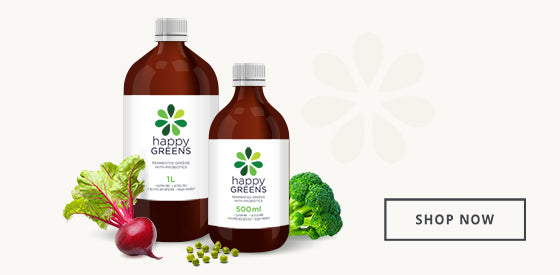What is Acid Reflux?
Reflux is a medical condition characterized by the backward flow of stomach acid into the esophagus (our food pipe). This phenomenon occurs when the lower esophageal sphincter (LES), a muscular valve that separates the esophagus from the stomach, fails to close properly or relaxes inappropriately.
Reflux results in a surge of acidic stomach contents into the esophagus and can cause:
- Heartburn – a burning feeling rising from the stomach or lower chest or burning chest pain or discomfort after eating
- Regurgitation – stomach acids coming back up into your mouth causing an unpleasant sour taste
- Pain or difficulty when swallowing
- Discomfort in the chest or throat (lump in the throat)
While reflux and heartburn are often used interchangeably, they are not synonymous. Reflux is the broader term encompassing the reflux of stomach contents into the esophagus, while heartburn specifically describes the burning sensation in the chest.
Heartburn can also happen when we have insufficient digestive juices and food is not properly broken down in the stomach.
Gastroesophageal reflux disease (GERD) is a chronic and more severe form of reflux, characterized by frequent episodes of reflux and potential complications such as esophagitis or Barrett's esophagus.
What Causes Reflux & Heartburn?
- Stress and anxiety: These can interfere with the proper release of digestive juices. If the body is in fight or flight mode there will be a delay in digestion which can result in food remaining in the stomach for longer periods, increasing the likelihood of reflux.
- Poor diet: Foods that aggravate and often cause reflux include spicy, oily, and fatty foods, processed foods, and sugar. Excessive alcohol and caffeine intake will do the same.
- Carbonated beverages: These can relax the LES or irritate the esophagus, contributing to reflux symptoms.
- Smoking: Smoking weakens the LES and increases acid production in the stomach, making reflux more likely to occur.
- Obesity: Excess body weight, particularly abdominal obesity, can increase pressure on the stomach and LES, leading to dysfunction.
- Pregnancy: Hormonal changes and increased pressure on the abdomen during pregnancy can weaken the LES and contribute to reflux symptoms.
- Medications: Some medications, such as calcium channel blockers, nitrates, antihistamines, and certain asthma medications, can relax the LES or increase acid production, leading to reflux.
- Hiatal hernia: A hiatal hernia occurs when part of the stomach protrudes through the diaphragm into the chest cavity, which can disrupt the normal function of the LES.
How to Treat Acid Reflux
Antacids and Reflux
Pharmaceutical medications such as Nexium® and Motilium® should only ever be used short-term and they're ‘band-aid solutions’. If the root cause of reflux remains unaddressed, digestive upsets can lead to further complications such as ulcers, inflammatory bowel conditions, malnutrition, skin problems, stress disorders, and liver disease.
What is the best diet for acid reflux?
- Slippery elm powder: This is a soothing powder that also heals your digestive lining driving down symptoms of reflux. You can find this at your local health food store and in our Happy Digestion formula.
- Include bitter foods: Rocket, cacao, broccoli, radicchio, and endive as they promote healthy digestion.
- Make this aloe vera drink. Aloe is excellent for soothing the digestive lining and alleviating symptoms of reflux or heartburn due to it's mucilaginous nature and anti-inflammatory action. If you choose to buy from your local health food store always opt for 100% aloe vera juice.
- Do not drink 15 minutes before or after eating. Liquids dilute the digestive enzymes.
- Avoid triggers. Limit sugar, wheat, dairy, caffeine, and alcohol as well as preserved, processed, and refined foods.
- Eat less acidic and more alkaline foods: Spicy foods, fatty foods, citrus fruits, tomatoes, chocolate, onions, garlic, and peppermint are known to relax the LES or irritate the esophagus, increasing the likelihood of reflux.
- Increase vegetable portions in your meals. In particular, those from the cruciferous family (Brussels sprouts, cabbage, broccoli, and green beans) as they encourage the liver to detoxify and support bile function. Steam rather than boil your veggies to retain maximum nutrients.
- Have vegetable juice each day (cucumber, parsley, beetroot, carrot, celery, and ginger). It encourages liver detoxification, alkalises and cleanses the system, and provides vitamin C to move the bowels.
Lifestyle changes to address reflux and heartburn
- Get sufficient sleep. Lack of sleep induces more acid to form in the stomach and cause reflux.
- Sleep with your head elevated. Elevating the head of your bed by 6 to 8 inches can help prevent nighttime reflux by using gravity to keep stomach acid from flowing back into the esophagus.
- Avoid lying down after eating. Wait at least two to three hours after eating before lying down or going to bed to allow food to digest properly and reduce the risk of reflux. Better yet go for a short walk within 30 minutes of eating.
- Practice stress-reduction techniques. Stress and anxiety can worsen reflux symptoms in some individuals. Incorporate stress-reduction techniques such as deep breathing exercises, meditation and yoga, into your daily routine to help manage stress and minimize reflux episodes.
- Practice portion control. Overeating can increase pressure on the stomach and LES, leading to reflux. Pay attention to portion sizes and avoid overeating at meals to help prevent reflux symptoms.
- Practice mindful eating. Slow down and chew your food thoroughly. Pay attention to hunger and fullness cues. Eating mindfully can help prevent overeating and promote better digestion, reducing the risk of reflux.
What Natural Medicine is Good for Reflux?
-
Introduce herbal teas. such as fennel, licorice, marshmallow root tea, dandelion, burdock to support digestion, liver detoxification, and bile production.
-
Try Happy Greens. HG is one of the best sources of live probiotics, plus it’s alkalising making it perfect for anyone with excess acid. Probiotics are essential for a healthy microbiome and a good balance of gut flora ensures we properly absorb nutrients from meals and make necessary postbiotics.
- Include our Happy Digestion formula. It’s a non-negotiable for anyone suffering from reflux as it heals the mucous membranes and restores integrity to the digestive tract. Excess acid in the stomach can damage the mucosal lining of the stomach and esophagus. When combined with Happy Collagen you can be sure you are improving your digestive integrity and providing prebiotics to feed the probiotics in your gut.
- Consider our Happy Liver formula. This is the right choice for anyone who is not making adequate digestive juices including HCL, enzymes and bile. Stress, nutrient deficiencies, and age can impair the release of digestive juices leading to heartburn.

Need help deciphering whether your symptoms are low or high stomach acid? Book into our online clinic for one-on-one care and an individualized treatment plan.










Leave a comment
This site is protected by hCaptcha and the hCaptcha Privacy Policy and Terms of Service apply.